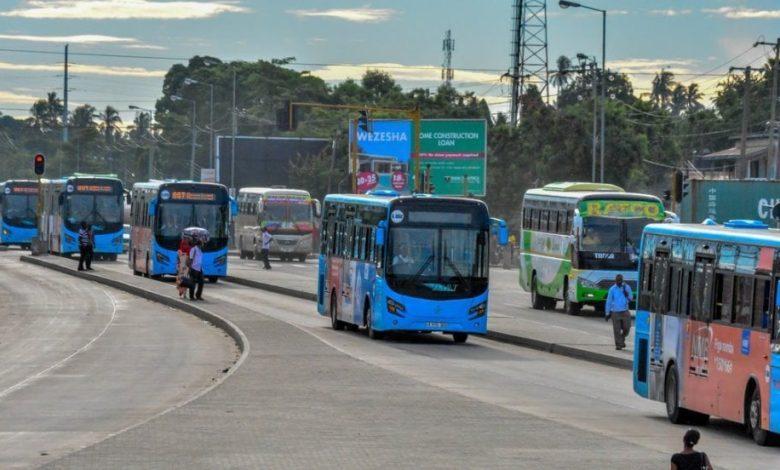Africa-Press – Tanzania. ANALYSTS have welcomed the Dar es Salaam Rapid Transit Agency’s (DART) move to partner with the private sector in the provision of transport service, saying that the initiative will significantly reduce waiting times at bus stops, enhance urban mobility and contribute to broader economic growth.
The new investment, valued at 350bn/-, will see 432 new buses added to Dar es Salaam’s public transport system in August this year.
The development follows the signing of two 12-year contracts between DART and Emirates National Group (ENG), an Abu Dhabi-based company and Mofat Company Limited, a Tanzanian firm.
Under the agreements, ENG will invest over 150bn/- and deploy 177 buses, while Mofat Company will invest around 200bn/-, bringing in 255 buses.
In an exclusive interview with ‘Daily News ’ DART Executive Director Dr Athuman Kihamia revealed that ENG’s 177 buses will serve phase one of the BRT system, covering 20.9 kilometres from Kimara to Kivukoni via Morogoro Road, Magomeni Mapipa, Morocco, Msimbazi and Gerezani along Kawawa Road.
Mofat Company’s 255 buses will operate along phase two, spanning 20.3 kms from Mbagala to Gerezani via Kilwa Road and other key corridors like Magomeni and Chang’ombe.
Dr Kihamia confirmed that all 432 buses will arrive in the country by August and begin operations shortly thereafter.
The initiative is expected to create 2,100 jobs, including 100 drivers, with a condition that all drivers must be Tanzanian. While the government continues to develop BRT road infrastructure, private partners will supply buses and contribute to public revenue through taxes and other fees.
Currently, bus services are provided by UDART, a transitional service provider operating approximately 90 buses in the city.
Commenting on the development, an economist at Saint Augustine University of Tanzania (SAUT), Dr Isaac Safari said the new investment marks a significant modernisation of the city’s public transport system and will improve service delivery to residents.
“With over 400 new buses coming in, we expect a sharp reduction in waiting time at bus stops and increased mobility for Dar es Salaam residents,” said Dr Safari.
He noted that private sector players, being profitand service-oriented, tend to manage operations more efficiently than public entities. However, he urged investors to balance profit-making with equitable service delivery.
“Focusing solely on profit could undermine service accessibility for low-income commuters who rely heavily on public buses,” he cautioned.
Dr Safari also advised the government to explore additional transportation options, such as underground Metro Transit, which provides an integrated network of buses, light rail and commuter trains railways, to accommodate population growth and prevent future congestion.
Dr Dotto Bulendu, a city development analyst, applauded the Public-Private Partnership (PPP) model, saying it is key to improving urban transit services.
He further commended the government, under the leadership of President Samia Suluhu Hassan, for continuing to expand the Bus Rapid Transit (BRT) network and engaging private investors to bridge the supply gap.
Dr Bulendu urged the government to consider building underground rail systems, especially in cities like Dar es Salaam, whose population is nearing six million.
“Beijing, with a population of around 29 million, has developed an underground train network that serves about 70 per cent of its residents. Tanzania can follow suit to ease pressure on surface roads,” he said.
An investment expert and banker, Dr Hildebrand Shayo said that adding 400 buses to Dar es Salaam’s urban transport fleet will enhance productivity, save time and stimulate economic growth.
“By reducing travel times and congestion, people can get to work faster. A 10–30 per cent cut in commute time could translate into billions of shillings in economic value annually,” he explained.
Dr Shayo also noted the employment opportunities that the expansion will create, including drivers, conductors, maintenance staff, administrative personnel, station vendors and tech developers of tracking apps, as well as indirect jobs in sectors like fuel supply, spare parts and bus assembly.
He added that increased public transport availability will reduce reliance on costlier private options like motorcycles and tricycles, resulting in lower transportation costs and higher consumer spending in other sectors such as retail, healthcare, education and food.
For More News And Analysis About Tanzania Follow Africa-Press







